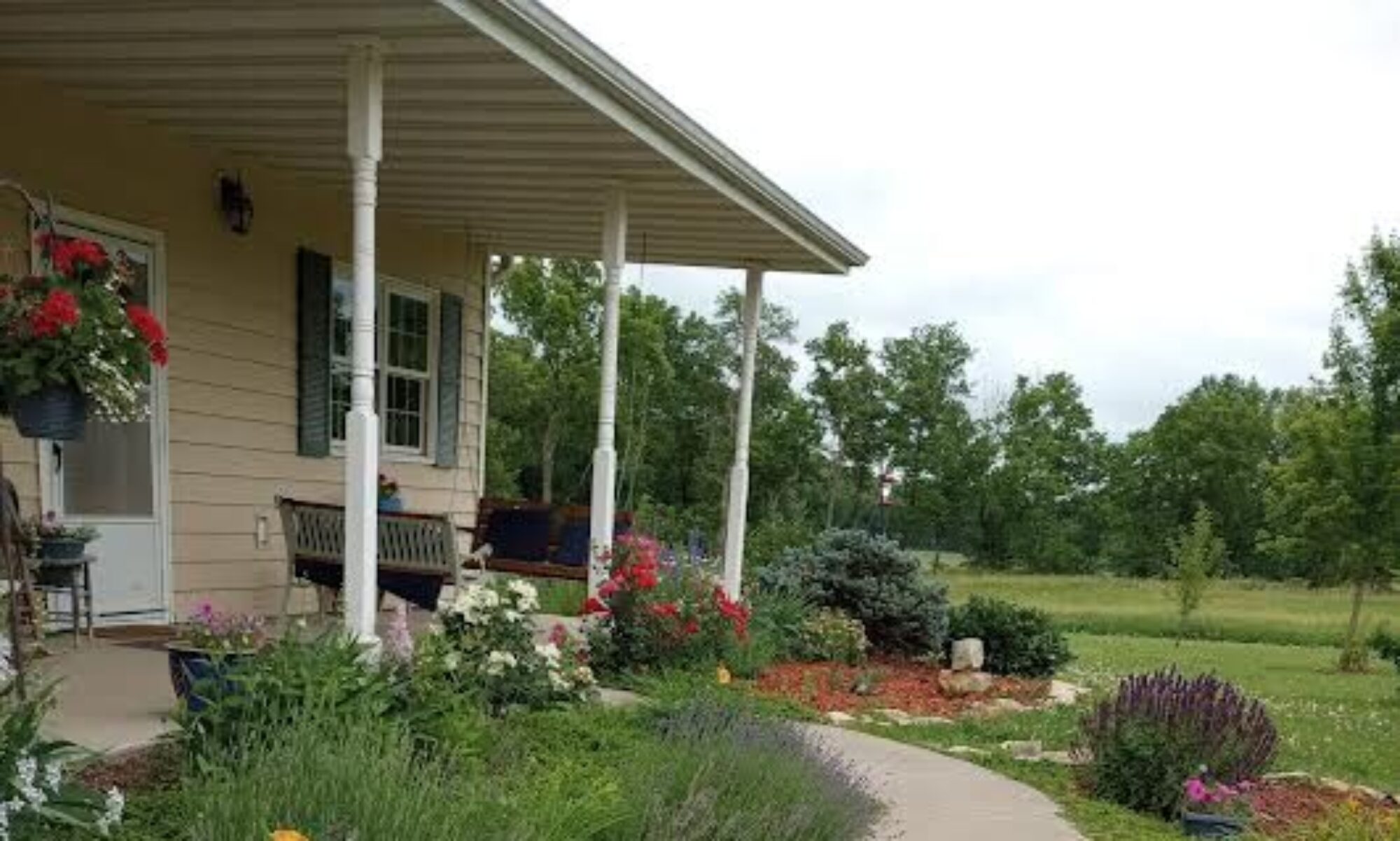I was making my way across the yard from the garden when I discerned a faint bleating floating down the hill from the pasture. Listening for a response from the rest of the flock, I heard nothing. Blind Mama was in trouble again. The house had been my destination, but instead, I turned to the hillside and made my way up the rocky path to the pasture. As I rounded the rise of the hill, on my right I could see the flock of sheep quite unconcernedly grazing in tall green prairie grass. The sound of the bleating was coming from my left. Poor Mama. She was lost, totally. She who had always been the leader of that currently unresponsive flock, had headed blindly into a thicket. At this point in her life, she navigated the pasture by listening for the sounds of the rest of the flock but they had found the grass and had seemingly tired of responding to her cries for help.
As I untangled her from the thorns of the thicket, I remembered her early years. She was the very first ewe we had purchased. My burgeoning flock had begun with her story.
We had met the Clacks at church and found that we had much in common, two of those being the love of horses and of wide open spaces. Anne and Bob had invited a couple of their grown children, a neighbor, Diane, and Judd and me for a meal at their spacious ranch home. That evening as we sat around the dinner table, the conversation had slowly gravitated to our newly acquired farm .
We are looking for a couple of goats to help us by eating the out-of-control weeds in the fields around the house, we said. When Diane heard the words goat and weeds together, she became animated. “You don’t want goats,” she argued, turning to look Judd in the eye. “What you need,” she said in a very authoritative tone, “are some wooly weed-eaters. I can guarantee you they will eat your weeds, they will be easy to care for, and I can get you started.” Diane had her own little flock of sheep and obviously was a champion for the fine practice of raising sheep. “Besides, you can sell the wool. You would have a great product produced by your very own sheep.”
Of course, it did not take long to convince me. Wanting to be a good neighbor, sheep sounded good to Judd, also. His brother, Phil, had owned goats, and was always getting in trouble with his neighbors over his wide-ranging, unstoppable goats. Judd valued good relationships with our neighbors.
Within a few days we were the owners of our first pregnant ewe. Little did Judd suspect that I would become captivated with being a “shepherdess.”
“Blind Mama” was not her first name. In the beginning, I had quickly given her the distinguished name of Priscilla. Priscilla began the clean-up job on our property, and was soon joined by her son, Aquila, shortened to Willy.
My flock continued to grow, and the old pro, Priscilla, became the accepted leader of the flock. She would lead them up the hill to pasture, back for water, and to the safety of the barnyard for the night. They trusted her. She was wise, patient, and protective, particularly of her lambs.
As she aged, however, her eyesight grew worse and worse. Somehow, each pregnancy drew from her body the nourishment that her eyes required. With every new lamb that she “threw,” I watched her cataracts grow thicker, until her eyes were opaque.
Her leadership began to be questionable. At first, I would find the entire flock packed against a corner of the pen, or wandering down into the dry bed of a stream. They would quietly stand where they were, waiting for Priscilla to lead them out of the dilemma. I would go out and get Priscilla started in the right direction and rescue her from her embarrassment. I don’t know how long it took the rest of the flock to realize that she was leading them astray most of the time, but finally a new leader took over.
At this point, I began calling her Blind Mama. By now she was following the flock by listening to the sound of their movement, but when they stopped to graze, she would lose them. Hence, in order to figure out where they were she would constantly bleat. At first several would respond to her. I could hear them calling back to her, and hear her responding until she was once again close to the rest of the flock. Occasionally, however, they would leave her standing alone in the pasture as they came back to the barnyard for water or shade. Poor Mama. Could I find a solution?





